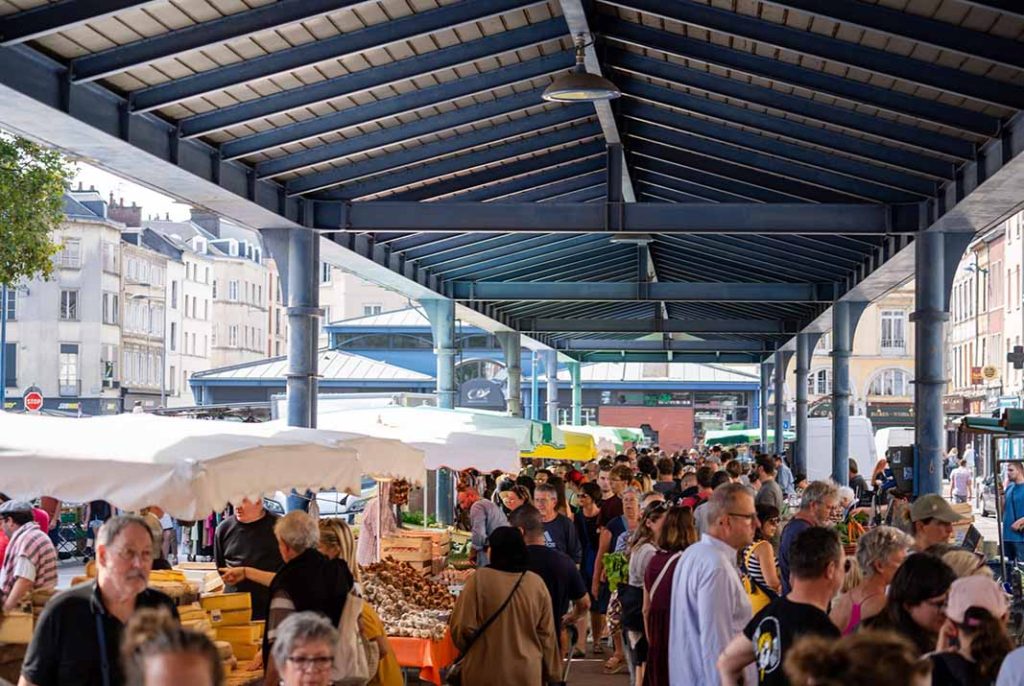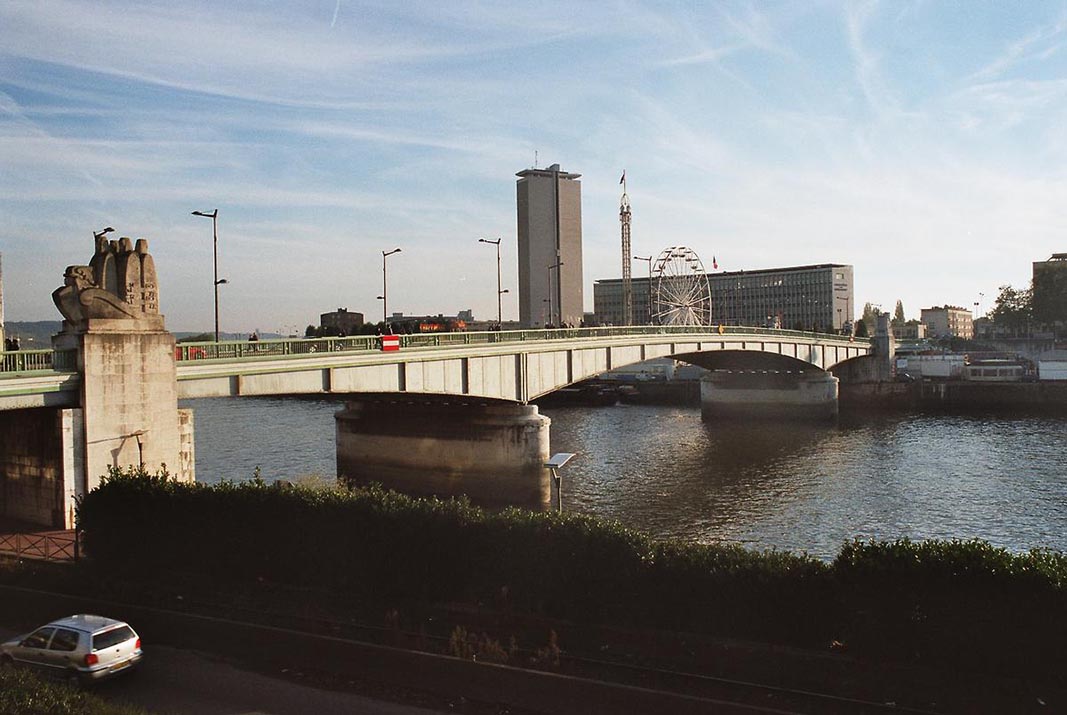Visiting Rouen, the historic capital of Normandy, has always been a dream for me. There’s something about its cobbled streets, the half-timbered houses, and the Gothic grandeur of Rouen Cathedral that feels timeless. On my first trip, I realized quickly that exploring such a rich, history-laden city could easily become expensive if I wasn’t mindful. But over several visits, I discovered that with a bit of planning, awareness, and creativity, it’s entirely possible to enjoy Rouen deeply without overspending. What follows is my comprehensive, detailed guide to saving money while immersing yourself in the city’s culture, history, and charm. I share practical tips, personal experiences, and insights I’ve learned the hard way, along with trusted platforms for booking flights, accommodations, tickets, and restaurants.
1. Travel During Off-Peak Seasons
Timing is everything when it comes to saving money in Rouen. I’ve visited in early March and late November, and the difference in cost and crowd levels is astonishing. During off-peak months, hotels drop their prices by almost half compared to the bustling summer season, and attractions are far less crowded. On one March morning, I walked along the Seine near the Pont Boieldieu, and the gentle mist hung over the river like a painting. I had space to breathe, to take photographs, and to absorb the atmosphere without feeling rushed or bumped by tourists.
Aside from financial savings, visiting during off-peak seasons gives a different kind of travel experience. Cafés are quieter, local markets like Marché Saint-Marc feel more authentic, and there’s room to notice the details in the city’s architecture that you might otherwise overlook.
Tips: Use Skyscanner or Google Flights to track seasonal deals for flights. For accommodations, Booking.com and Airbnb often offer discounts for early bookings during quieter months. Additionally, browsing local travel forums sometimes reveals “hidden deals” from hotels trying to fill rooms.
2. Book Flights and Trains in Advance
I’ve learned that last-minute travel is a budget killer. Booking a flight to Paris and a connecting train to Rouen months ahead often saves you a significant amount. From Paris, Rouen is easily reachable via SNCF trains or buses, and prices can be surprisingly reasonable if you book early.
On one trip, I booked a train from Gare Saint-Lazare to Rouen a month in advance for just €12, whereas last-minute tickets would have been closer to €25–€30. Choosing early morning or late evening trains also reduced costs while letting me maximize my time in Rouen.
Recommended platforms: Omio and Trainline are excellent for comparing trains and bus connections in France and across Europe. Skyscanner and Kayak help monitor flight deals, and setting price alerts can notify you when fares drop. Booking early also secures preferred seating, especially on high-speed trains.

3. Stay in Boutique Hotels or Guesthouses
I love staying in charming, smaller accommodations because they combine comfort with local character, and usually come at a fraction of luxury hotel costs. In Rouen, I stayed at Hôtel Morand, a historic hotel just off Place du Vieux-Marché. Its exposed wooden beams and antique furnishings made me feel like I had stepped into another era, yet the rooms were clean, quiet, and modernized for convenience.
Rooms in off-peak seasons cost around €70–€90 per night. By comparison, more upscale hotels along the Seine often start at €150 per night. And the personal touch from small hotel staff—recommendations for hidden cafés, tips on market hours, or even directions to secret viewpoints—made my stay far more memorable than a larger chain could offer.
Booking tip: Hotels.com, Expedia, and Airbnb are reliable for comparing rates. Reading guest reviews is invaluable, especially for smaller properties, as it can reveal hidden gems or potential inconveniences. For a more luxurious stay without overpaying, look for boutique hotels offering early booking discounts or special weekend rates.
4. Eat Like a Local
Food is one of the joys of Rouen, yet dining at tourist-heavy restaurants can be pricey. I quickly learned that small cafés, bakeries, and bistros tucked away from the main squares offered authentic meals at a fraction of the cost. For example, a freshly baked Tarte Normande and café crème at a neighborhood patisserie cost less than €10, whereas the same in a square near the cathedral easily exceeded €15.
Markets such as Marché Saint-Marc are fantastic for grabbing fresh produce, cheeses, and pastries, and make perfect picnic options along the Seine or in Jardin des Plantes. Sitting on a bench watching the river while eating a baguette stuffed with local cheese felt more authentically Norman than a rushed table at a touristy restaurant.
Tips: Use TheFork (LaFourchette) to find restaurant discounts, special menus, or prix-fixe lunch options. Often, these offer three-course meals for less than the cost of a single main course at a high-end restaurant. I also recommend exploring local boulangeries early in the morning—they’re not only cheaper but also give insight into the city’s daily rhythm.
5. Take Advantage of Free Attractions
Rouen is full of experiences that cost nothing yet offer immense satisfaction. Walking the Place du Vieux-Marché, admiring the Gros Horloge, and exploring Rouen Cathedral are all free. I spent an entire morning wandering its naves, marveling at the soaring Gothic arches, and watching sunlight filter through the stained glass.
Parks like Jardin des Plantes de Rouen or the riverside paths along the Seine provide both relaxation and photo opportunities. I brought a small notebook to sketch scenes—like the morning mist over the cathedral—which became souvenirs in themselves.
Tip: Many museums offer free entry to permanent collections. Musée des Beaux-Arts de Rouen is free for permanent exhibits, and booking temporary exhibitions online via Tiqets or GetYourGuide sometimes unlocks discounted rates.
6. Use Public Transport and Walking
Rouen’s city center is compact and highly walkable. Most landmarks are within a 20-minute stroll of each other. I saved money by walking everywhere and using the Métrobus for slightly longer trips. A 24-hour pass costs roughly €5, allowing unlimited rides on buses and trams—far cheaper than taxis or rideshares.
Walking also lets you notice the subtle charms of Rouen: ivy climbing the walls of medieval houses, small artisan shops tucked into alleys, or the aroma of freshly baked bread wafting from a boulangerie.
Tips: Download the Semtao app for real-time schedules, or check maps for pedestrian-friendly routes. Early mornings are ideal for exploring on foot, both for light and for avoiding busy streets.
7. Book Tickets Online for Attractions
I’ve found that online bookings often come with discounts or skip-the-line privileges. I booked the Rouen Panorama Tower and guided tours of the Joan of Arc Church via GetYourGuide and Tiqets, saving 10–15% compared to ticket counters. It also gave me peace of mind—no waiting in long lines during peak visiting hours.
Many smaller museums or temporary exhibitions in Rouen offer online specials. For example, a few euros off tickets at Musée Flaubert or the Historial Jeanne d’Arc can be found by booking in advance.
8. Take Advantage of Student or Youth Discounts
Even if you’re not a student, youth discounts can apply up to age 26 in Europe. Using a European student ID, I saved a noticeable amount at Musée Flaubert et d’Histoire de la Médecine.
Tip: Always carry a valid ID or student card—it may not only save money on entrance fees but also on transport passes or guided tours. Sometimes museums offer additional discounts for groups or multi-attraction passes.

9. Limit Souvenir Spending
Souvenirs are easy to overspend on, especially in tourist-heavy areas. I’ve learned to focus on meaningful items: a small bottle of Calvados, locally made soaps, or artisan pastries to share with friends back home. Markets around Place du Vieux-Marché are great for affordable, authentic finds.
Tip: Decide on a daily souvenir budget. Carry a small cash envelope to avoid overspending and keep your wallet light while exploring. Often, the best souvenirs are experiences or photos, which cost nothing.
10. Plan Your Itinerary to Avoid Extra Costs
Efficient planning not only saves money but also time and stress. I mapped out walking routes connecting free and paid attractions, minimizing public transport needs and avoiding last-minute cab rides. This allowed me to explore Rouen Cathedral, Gros Horloge, Place du Vieux-Marché, and several small museums in a single day efficiently.
Recommended platforms: Google Maps for route planning, TripAdvisor for up-to-date reviews, and Rome2Rio for public transport connections. Planning also enables you to catch free events, like street performances or markets, without paying extra for entertainment.
Practical Booking Platforms for a Budget-Friendly Trip
- Flights: Skyscanner, Kayak, Google Flights
- Trains & buses: Omio, Trainline
- Hotels: Booking.com, Hotels.com, Airbnb, Expedia
- Attractions & tours: GetYourGuide, Tiqets
- Restaurants: TheFork (LaFourchette in France)
Strolling through Rouen with a mindful budget didn’t feel limiting—it enhanced my experience. From choosing the right travel dates to savoring local markets and free attractions, I discovered that thoughtful planning allows you to enjoy Rouen fully while keeping your expenses in check. By integrating local wisdom, online resources, and careful timing, Rouen becomes not just an affordable destination but a richer, more authentic travel experience.



